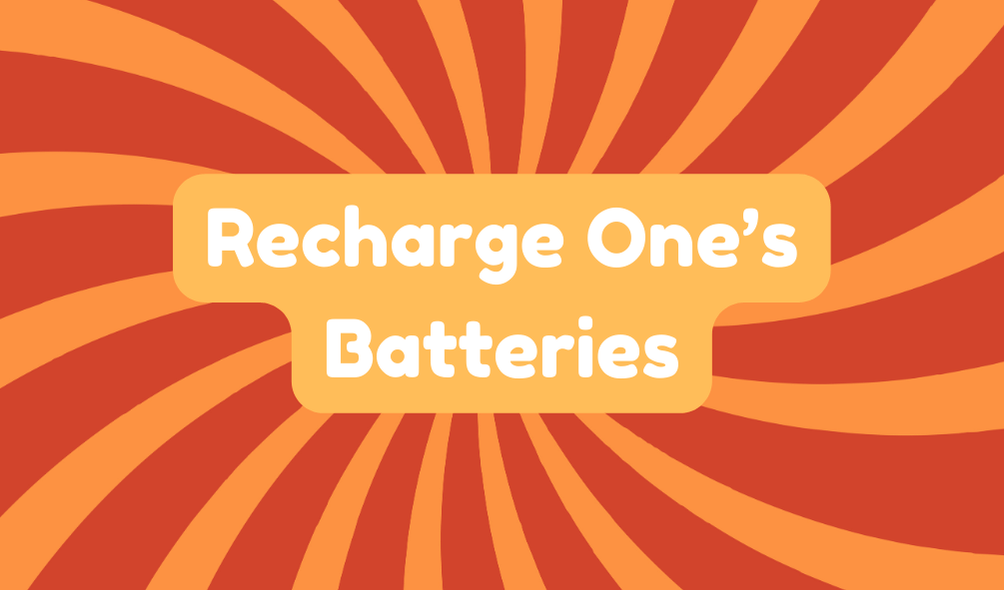To recharge your batteries means you need to step back from the busy pace of life and allow yourself some necessary downtime. It's not just a catchy phrase; it highlights how essential breaks are for both mental and physical energy. Daily mental breaks, or even short power naps, can make a big difference in your focus and creativity. Historically, the idea has roots in calls for renewal that date back years, showing its ongoing significance. In today's world, constant connectivity makes rest even more critical. Taking time to restore energy can ultimately lead to better performance and well-being, so stick around to explore more methods.
Synonyms
When you're feeling drained, what other ways can you express the need to recharge? Finding alternative phrases can help you articulate your need for power restoration and energy replenishment.
Consider these synonyms that capture the essence of recharging:
- Restore your energy
- Refuel your spirit
- Take a breather
- Regain your momentum
Using varied language can elevate your conversations and make your needs clearer. It might seem trivial, but being specific helps others grasp the seriousness of your quest for recovery. It's essential not to underestimate the importance of rest; after all, without proper breaks, you risk depletion. So, when you're reveling in the revitalizing moments of life, articulate that need using the right words.
Example of Sentences
Examples of how to express the need to recharge can illuminate the importance of rest in our daily lives. Recognizing when you need a break is significant, but it's easy to overlook. Here are some sentences that capture this need:
- "Scheduling a daily mental break helps boost creativity."
- "Taking time off after intense work resets your focus."
- "Indulging in hot showers can recharge your energy after workouts."
- "Prioritizing early sleep before exams restores your mental strength."
Implementing these rest strategies isn't just beneficial; it's fundamental. Too often, we push through exhaustion instead of embracing recovery. Remember, staying productive requires recognizing the signs of burnout and actively engaging in restorative practices. Don't underestimate the power of regular mental breaks; they're essential for innovation and success.
Origin
The phrase "recharge one's batteries" has an intriguing origin, tracing its roots back to British writer Winston Churchill. Used often in Churchill's correspondence with his wife, this expression reflects a need for renewal. It's fascinating that an idiomatic expression from the 20th century captured such a timeless human experience. Highlighted in Mary Soames' biography "Clementine Churchill" (1979) and noted in various publications, this phrase illustrates how language evolves to meet our needs. While we might take this idiom for granted today, its origins remind us of the importance of rest, echoing a sentiment that transcends generations. Whether we innovate in work or seek personal balance, recognizing the necessity of recharging is essential for success.
Collocations
Regularly using collocations related to "recharge one's batteries" can enhance your communication, making it more expressive and relatable. Instead of merely saying you need a break, consider incorporating specific terms that resonate with your audience. Here are some effective collocations:
- Effective rest techniques help you relax.
- Innovative recovery methods boost your performance.
- Nature escapes can truly rejuvenate your spirit.
- Short power naps work wonders during hectic days.
These phrases not only communicate your need for rest but also reflect an understanding of the strategies involved in recovery. Don't underestimate the impact of nuanced language; it emphasizes your commitment to self-care in a fast-paced world, motivating others to explore their own approaches to mental and physical well-being.
How to Use in Everyday Language
Incorporating the concept of recharging one's batteries into everyday conversations helps emphasize the importance of rest and relaxation. You should consider weaving it into discussions about your rest habits or when suggesting self-care techniques to friends. For example, instead of saying you're "taking a break," you might say you're "recharging your batteries" to convey the need for recovery. When chatting about weekends or vacations, highlight their potential to rejuvenate your energy. While many people overlook the value of downtime, acknowledging that even busy schedules require these moments can spark a change in mindset. By using this phrase actively, you encourage others to prioritize their well-being, boosting awareness of rest's critical role in maintaining creativity and focus.
Why Is It Still Relevant Today?
Many people today feel the pressure of constant connectivity and relentless schedules, making the concept of recharging one's batteries more relevant than ever. The importance today revolves around understanding that without breaks, creativity and productivity plummet. Embracing rest isn't a luxury; it's essential for mental well-being and performance.
| Reason for Rest | Impact on Life | Cultural Relevance |
|---|---|---|
| Prevents burnout | Enhances creativity | Universally recognized |
| Boosts productivity | Improves focus | Reflects self-care |
| Encourages balance | Supports long-term health | Acknowledges busy lifestyles |
In today's fast-paced world, recognizing the necessity of downtime is vital, reminding us that innovation thrives only when we prioritize self-care. Don't underestimate the power of pausing.







